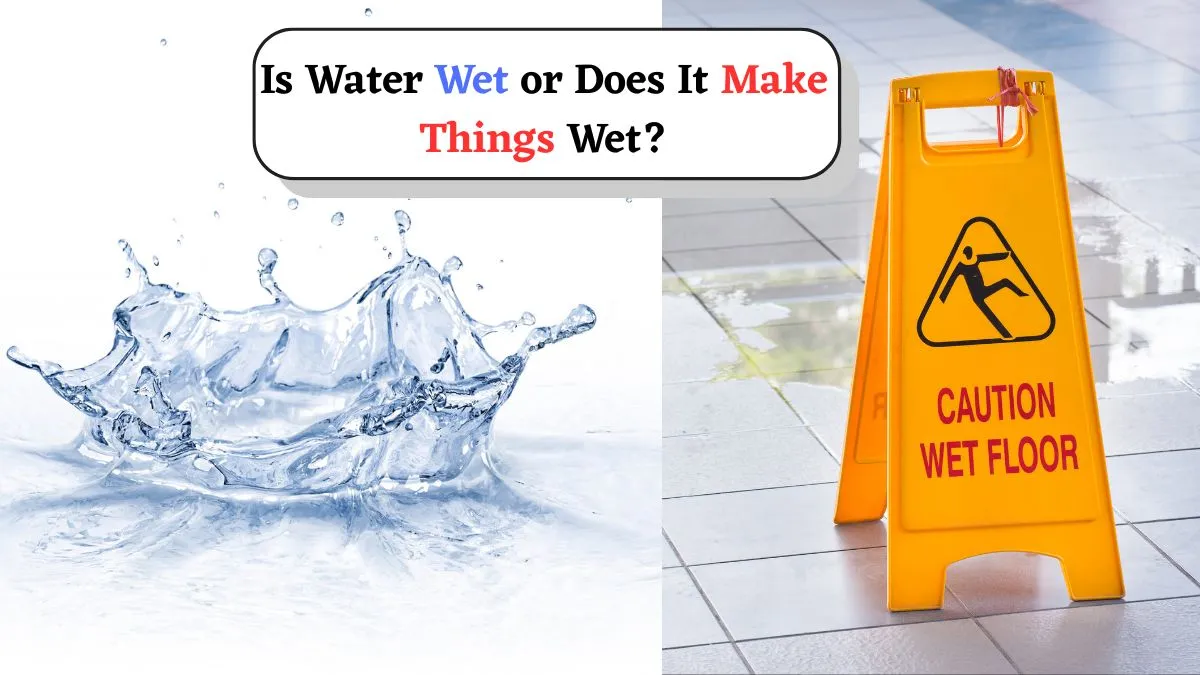- By Aditi Priya Singh
- Mon, 11 Aug 2025 01:11 PM (IST)
- Source:JND
Is Water Wet or Not: Certain questions in daily life appear so simple that we don't give them much thought until someone asks them and we discover the answer isn't as obvious as we initially believed. One such question is whether water is truly wet or if it just makes other things wet? Well, this question has generated countless debates, discussions and even scientific explanations. It may appear apparent at first, but the more you consider it, the more perplexing it becomes.
The confusion starts with the meaning of the word "wet". Anything that has liquid on its surface is referred to as wet in daily life. What about the liquid itself, though? Is it capable of being wet, or does it only impart "wetness" to other objects? This is where language and science meet.
To truly understand the answer, we need to explore both the science of how liquids behave and the way we use words. Only then can we decide if water is wet or if it’s just the master of making everything else wet.
What Does "Wet" Really Mean?
-1754897892247.jpg) Is water wet or does it make things wet (Image: Canva)
Is water wet or does it make things wet (Image: Canva)
Something is wet when it has liquid on its surface. In the Scientific angle, wetness is the sensation or state of being covered by a liquid. But the key point is that if “wet” means being coated with a liquid, the liquid itself may not be “wet”; it causes wetness.
The Science Behind the Debate
According to science, a state known as "wetness" occurs when a liquid sticks to a solid's surface. That requires adhesion, the attraction between different substances, more than cohesion, which is the attraction between like molecules. In this way, the property is something the liquid can temporarily impart to other materials rather than something it possesses on its own.
As per the California Learning Resource Network (CLRN), a substance is considered wet when a liquid spreads across its surface. Because liquids tend to stick more to other substances than to themselves, a phenomenon called autophobia while a liquid doesn't wet itself.
ALSO READ: Which Fruits Can Float On Water Due To 25% Air In Them?
Arguments between whether Water is ‘Wet’ Or ‘Not Wet’
Some argue that it’s not “wet” because wetness describes the relationship between a liquid and another object. Others say it is “wet” because each molecule is surrounded by more of the same molecules, essentially “covered” in itself.
Two Main Views
1. Not Wet – Just Makes Things Wet
Both a liquid and a surface are necessary for wetness. Wetness is caused by the liquid, which is not wet because it is in its natural state. For instance, fire burns things rather than "burning" them.
2. Yes, It’s Wet
Every particle comes into contact with other particles, which could be viewed as a type of covering. If we say it can wet objects, then why exclude itself from that property?
What Scientists Say?
-1754897928309.jpg) Is water wet or does it make things wet (Image: Canva)
Is water wet or does it make things wet (Image: Canva)
Most scientists agree that wetness describes a condition, not an inherent property of the liquid. In simple terms, the liquid isn’t “wet” on its own; it just makes other things wet. Wetness occurs when a liquid coats a solid surface.
ALSO READ: Why Does Bottled Water Come With An Expiry Date?
Your point of view will determine the answer. Science says liquid is just liquid and not wet. However, since it feels that way to us, people may still call it wet in casual conversation. Therefore, the debate is more about language, definitions and how our brains categorise the world than it is about chemistry.

